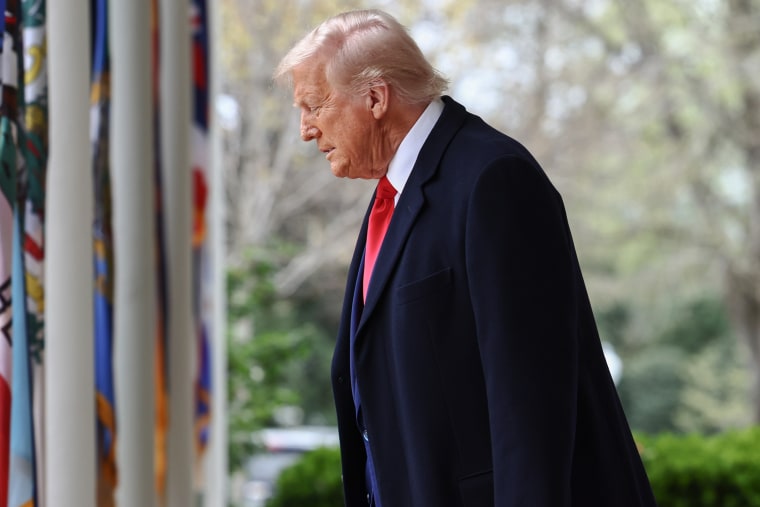WASHINGTON — The Supreme Court said Thursday it will hear oral arguments next month on whether the Trump administration can take steps to enforce its contentious proposal to end automatic birthright citizenship while litigation continues.
The court in a brief order deferred action on an emergency request made by the Trump administration to narrow the scope of nationwide injunctions imposed by judges.
The policy for now remains blocked nationwide.
Follow live politics coverage here
The court, when it hears arguments on May 15, will consider whether judges exceeded their authority in issuing nationwide injunctions.

The Trump emergency application does not address the legal merits of the plan, but only whether judges had the authority to put it on hold across the entire country. President Donald Trump and his MAGA allies have been harshly critical of judges who have blocked aspects of his agenda, although it is not a new phenomenon for courts to impose nationwide injunctions.
It has long been widely accepted, including by legal scholars on the left and right, that the Constitution's 14th Amendment confers automatic citizenship to almost anyone born in the United States.
“All persons born or naturalized in the United States, and subject to the jurisdiction thereof, are citizens of the United States,” the amendment says. Based on historical practice, the only exception is people who are the children of diplomats.
Trump wants to adopt a completely new meaning of the language that would confer citizenship only on those who have at least one parent who is a U.S. citizen or permanent resident.
Speaking at the White House on Thursday afternoon, Trump expressed his view that the 14th Amendment was directed only at former slaves, "and if you look at it that way we will win."
It's a view the majority of legal experts, as well as those who have challenged the proposal, disagree with.
"President Trump’s attempt to terminate birthright citizenship is blatantly unconstitutional, which is why every court to date has rejected his administration’s filings," New Jersey Attorney General Matthew Platkin, a Democrat, said in a statement Thursday.
Trump's executive order, issued on his first day in office in January, was immediately challenged, and every court that has ruled on the proposal so far has blocked it. At issue at the Supreme Court were cases filed in Maryland, Massachusetts and Washington state.
In court papers acting Solicitor General Sarah Harris said that judges did not have the authority to issue nationwide injunctions and that the states that sued did not have legal standing.
The Trump plan has the backing of 21 other states.
